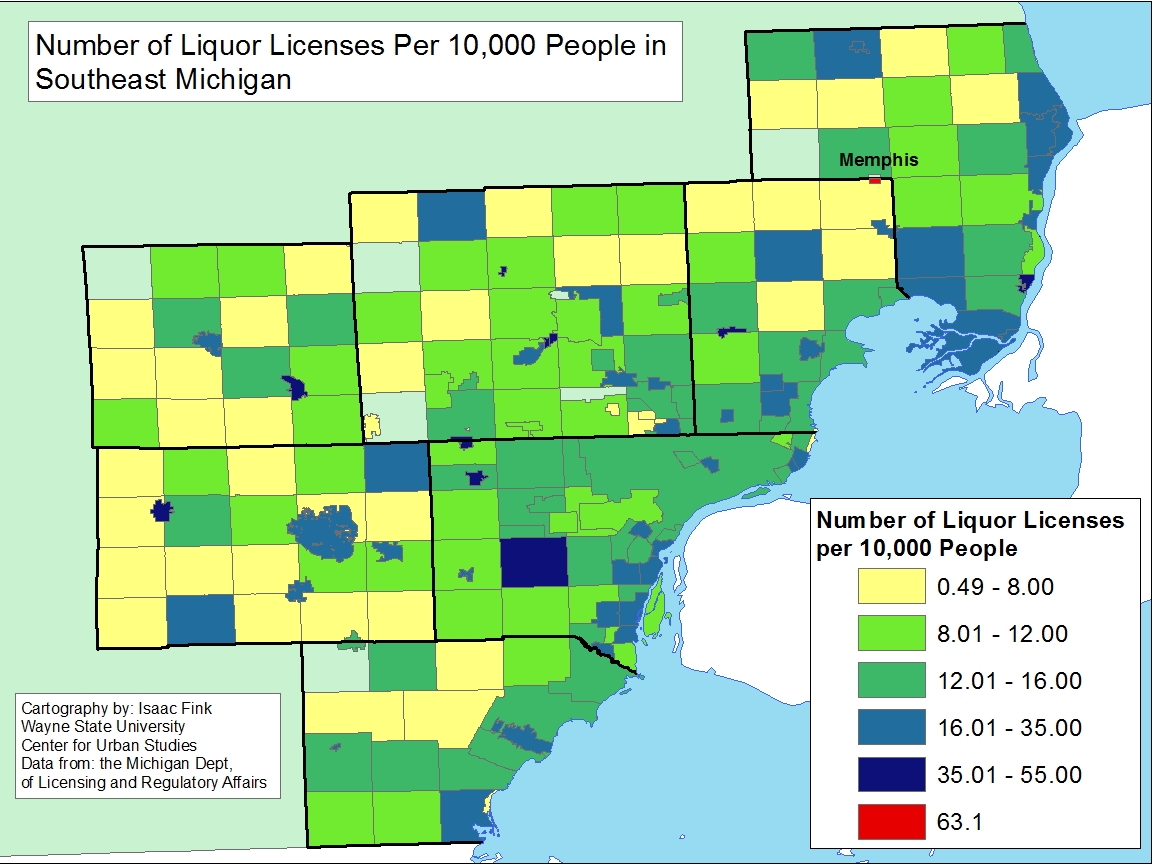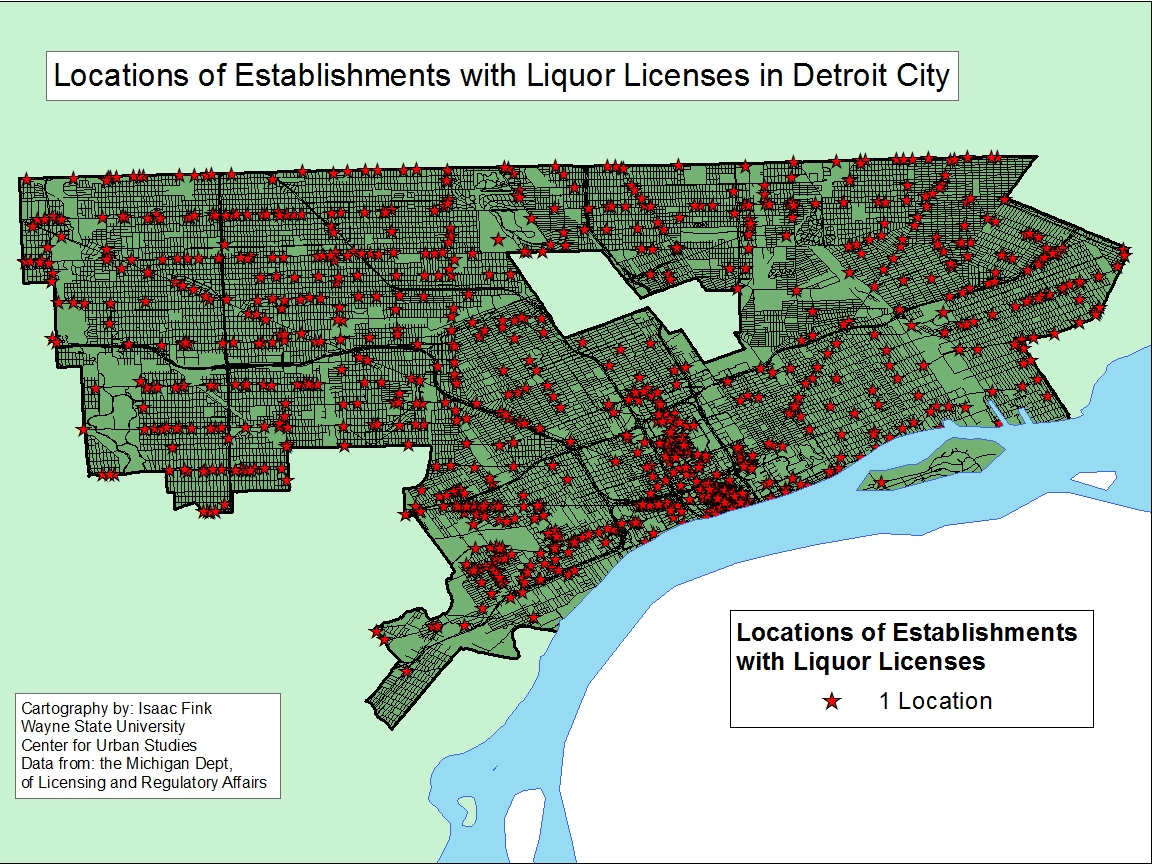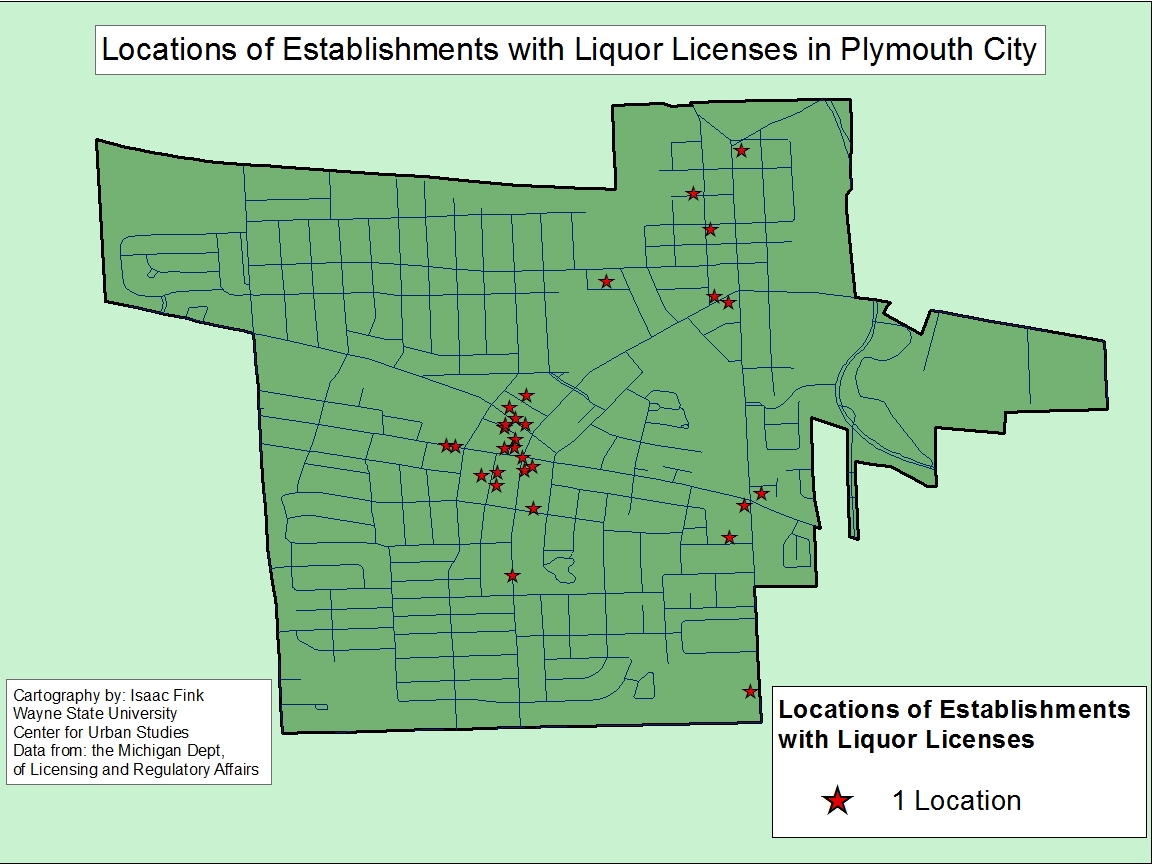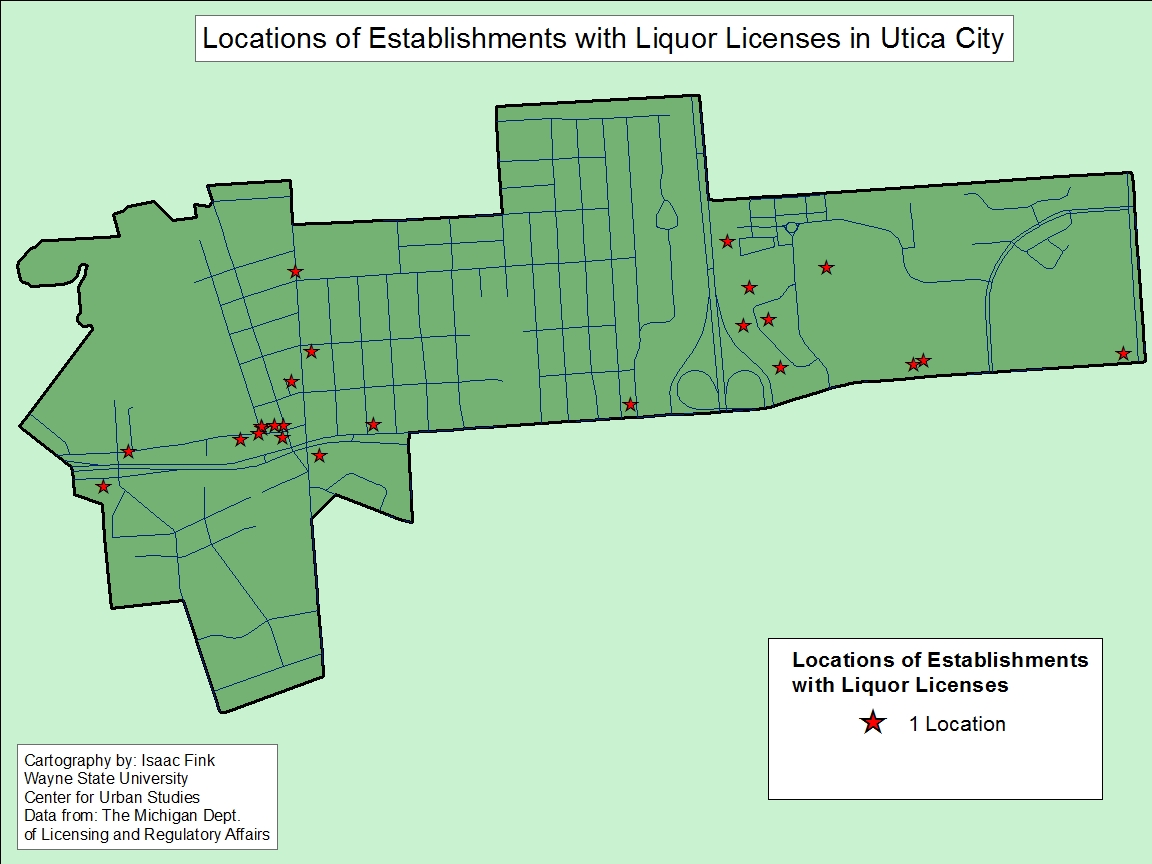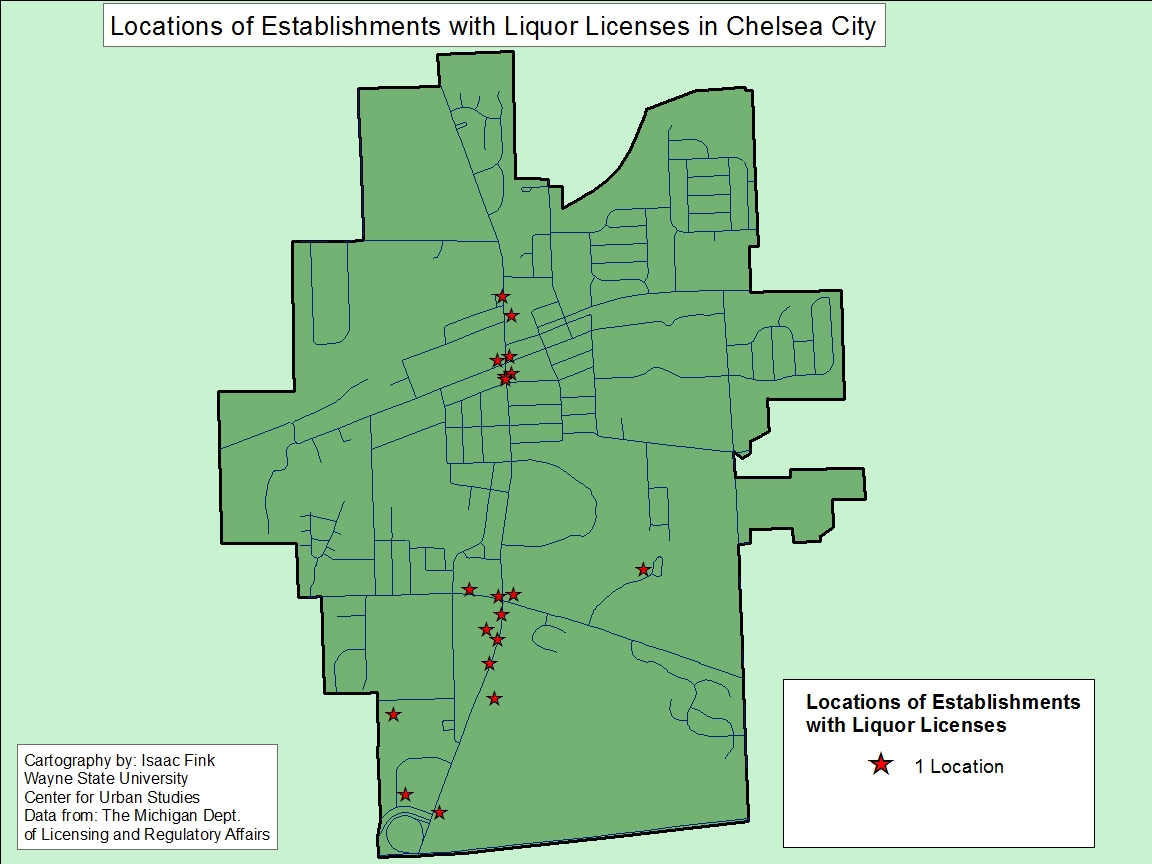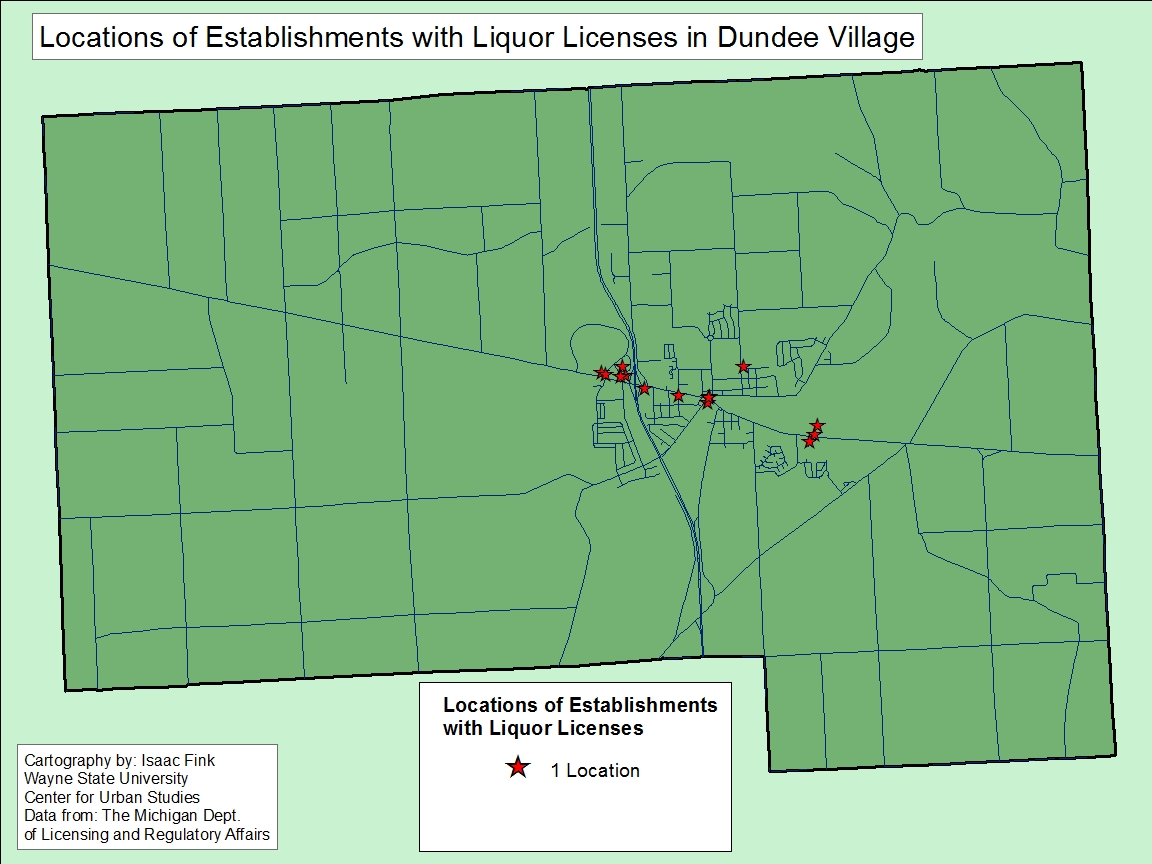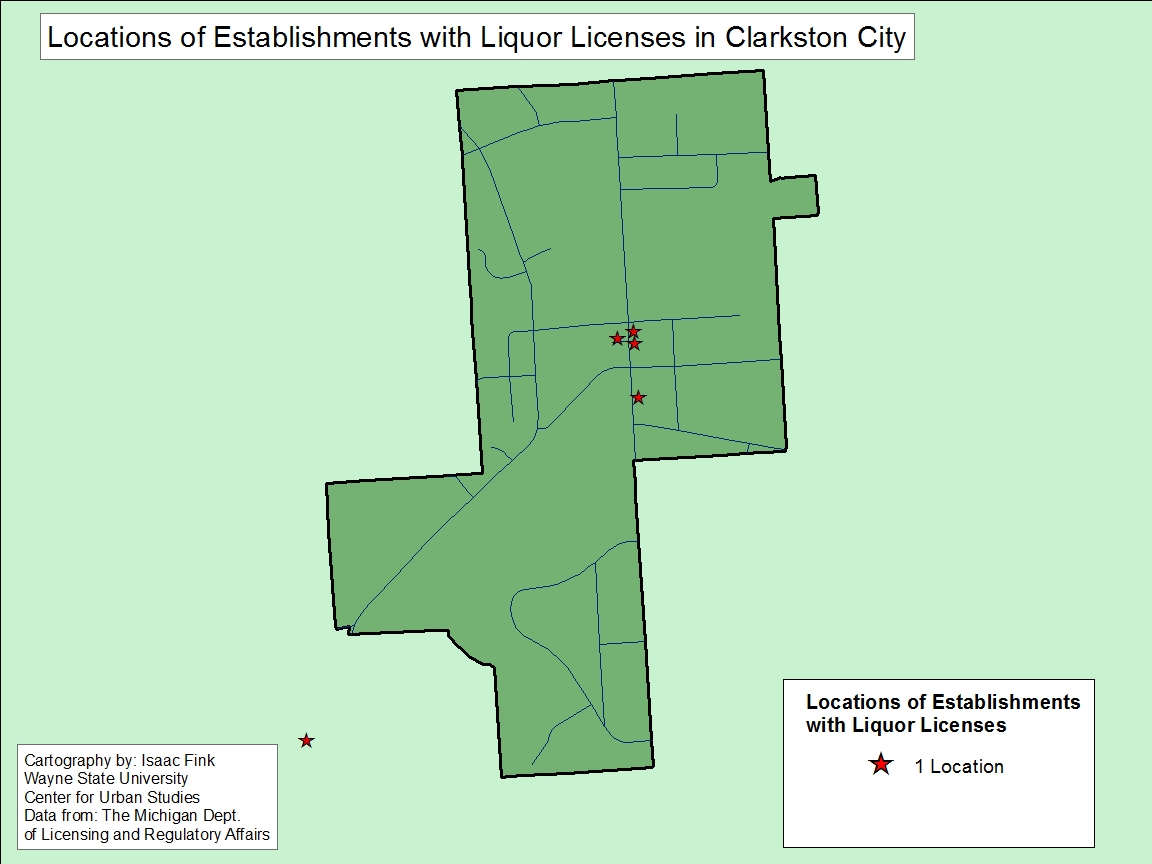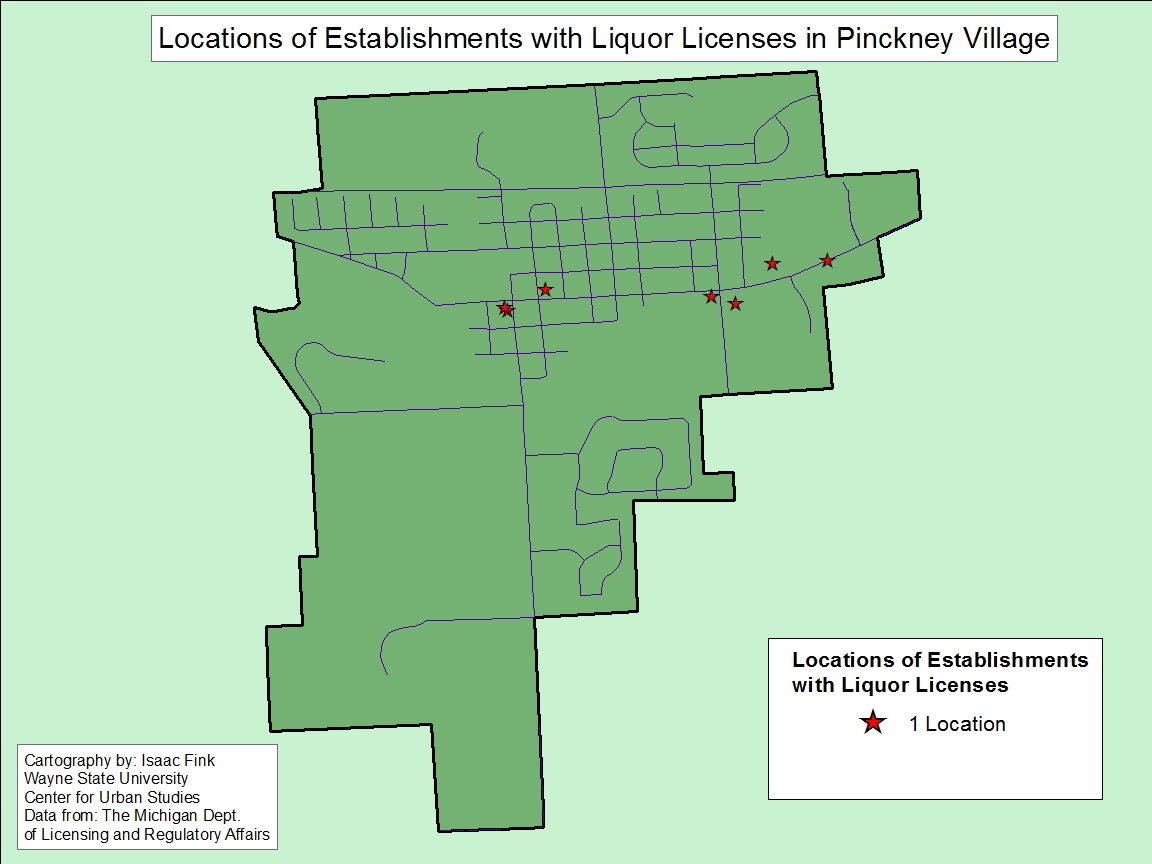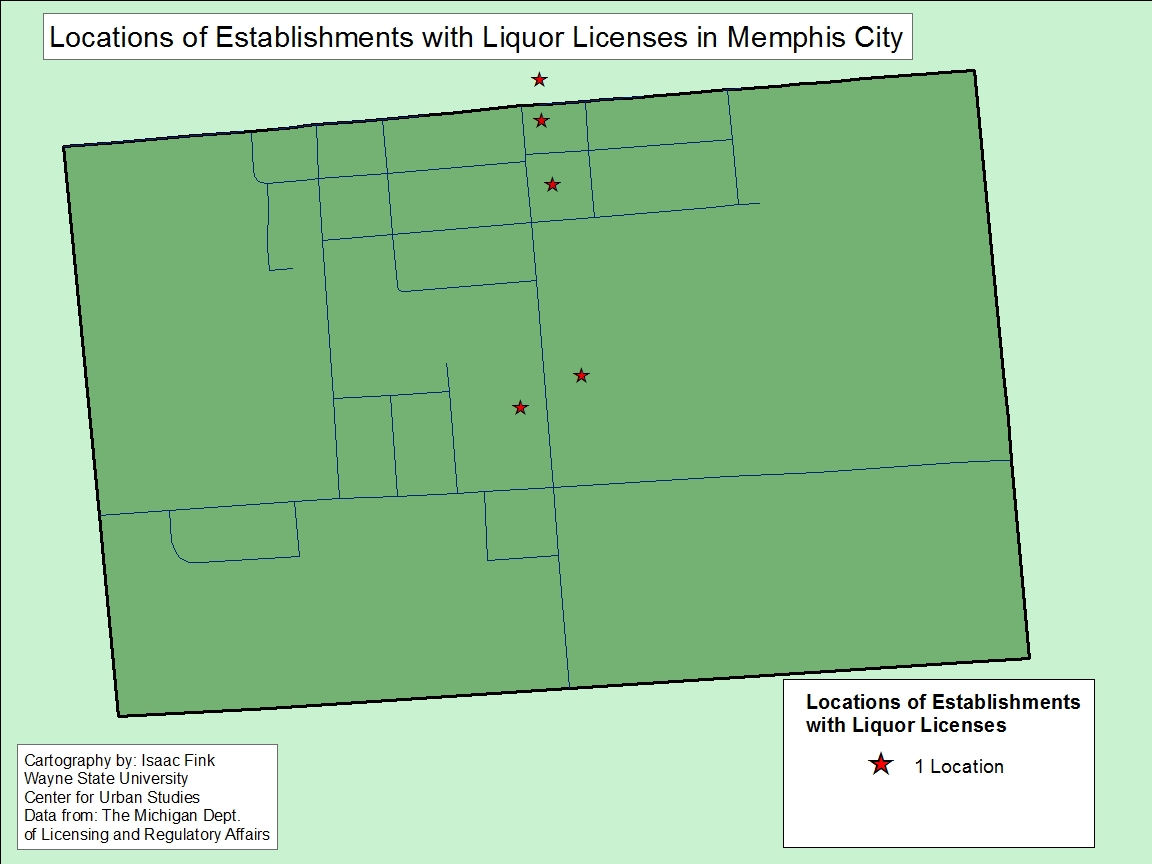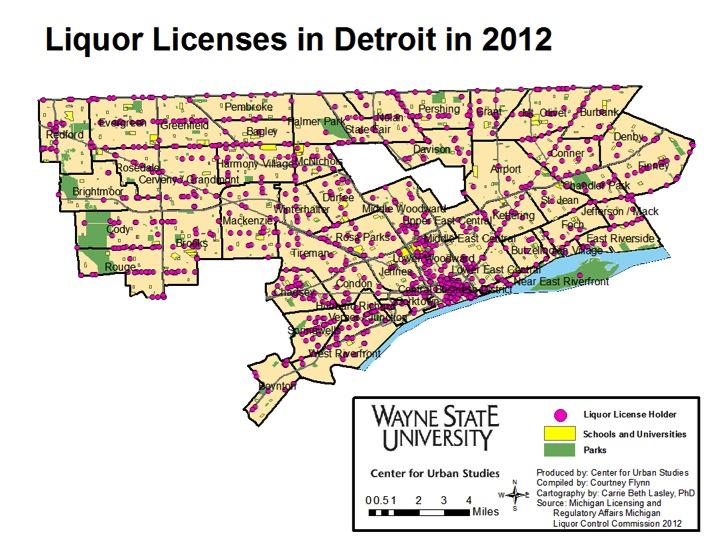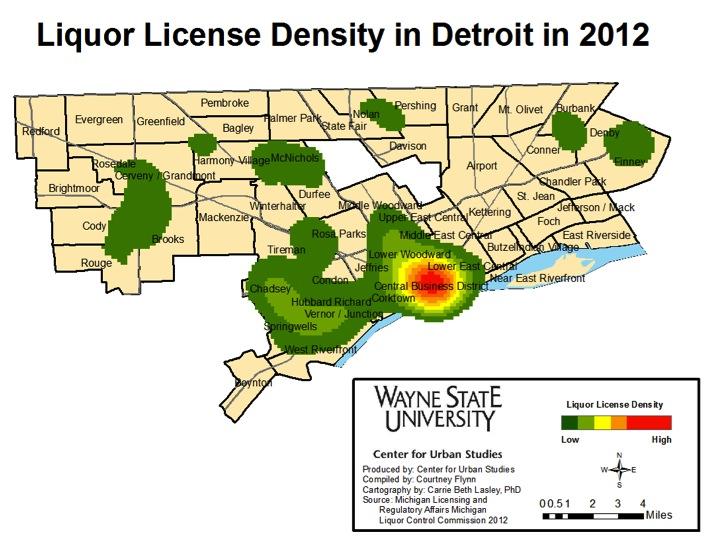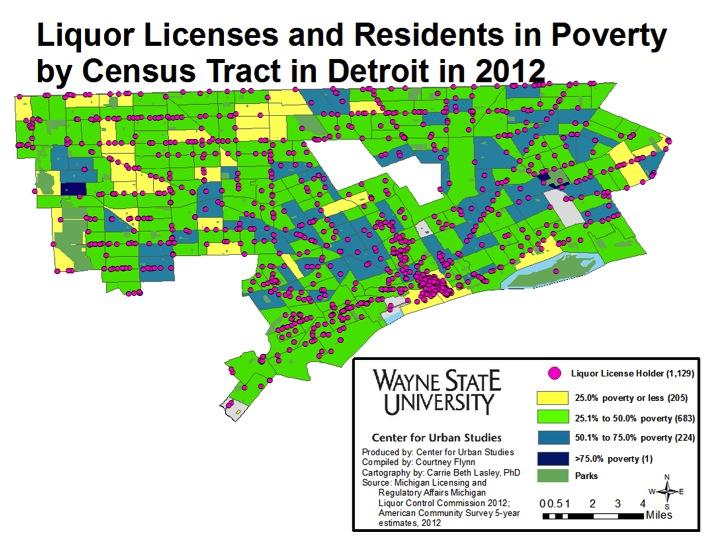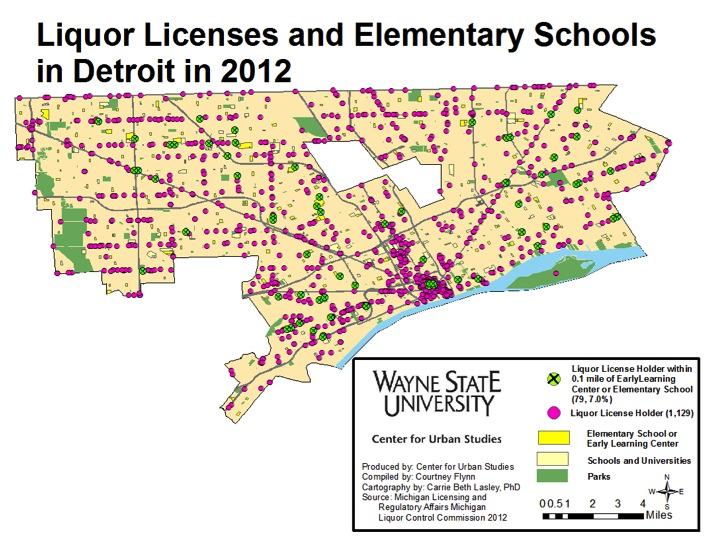In the City of Detroit there are a total of 1,017 liquor licenses, which equates to about 15 liquor licenses per 10,000 people. A look at the Detroit map below shows that establishments with these licenses are located throughout the city, but patterns occur on major roadways, such as Gratiot and Woodward avenues, and in the larger business districts, such as the downtown area and up into Midtown. There is also a concentration of establishments with liquor licenses in Southwest Detroit.
In Michigan there are several types of liquor licenses which can be obtained, according to the Department of Licensing and Regulatory Affairs, which provided the data for this post. These include licenses needed to sell just beer, those need to sell beer and liquor at a golf course, a hotel, a bar and at a private event. Additionally, brewpubs, distilleries, wholesalers (both those in state and those out of state bringing goods in), winemakers, and stores selling beer and/or liquor need a license. All liquor licenses in the state of Michigan are issued by the Michigan Liquor Control Commission; each license (with the exception of special designated ones) can be transferred anywhere within the county in which the original license was issued.
For this post, there are maps of seven different communities, each one represents the community in each Southeastern Michigan county with highest number of establishments with liquor licenses per 10,000 people. The maps however are dot maps, showing the total number of establishments in each community. The regional map though, which is the first map shown below, represents the number of establishments with liquor licenses per 10,000 people. The per capita calculation was used to best show how many establishments there are per person, or in this case per 10,000 people, so the data could be comparable for each community in the region. Due to how the per capita rate is calculated (taking the old total number of establishments, multiplying it by 10,000 and then dividing that number by the total population) the rate often appears larger than the total number of establishments with liquor licenses.
While Detroit has the highest total number of establishments with liquor licenses in Southeastern Michigan, the village of Memphis has the highest total of liquor licenses per 10,000 people at 63. In total, Memphis, of southern St. Clair County, has 5 establishments with liquor licenses, most of which are concentrated in the downtown business district. The total population of Memphis about 800, a number that plays a role in its high number of liquor licenses per capita. Each community with the highest number of establishments with liquor licenses per 10,000 people in each of the seven counties has smaller population numbers, and of those other six communities The cities of Plymouth and Utica are the only two that have more than 20 establishments with liquor licenses. The city of Plymouth has 39 and Utica has 25 establishments with liquor licenses. The rate per 10,000 people for Plymouth is 44 and the rate for Utica is 53. Plymouth’s population is nearly double of Utica’s at about 9,000 people. The total number of establishments with liquor licenses and the per capita number for the other communities with the highest per capita in each county are:
- Plymouth (city)-39 (total); 44 (per capita)
- Uitca: 25, 53
- Chelsea-19; 37
- Village of Dundee-14; 35
- Pinckney-7; 48
- Clarkston—5; 54
In all of the maps featured below there are two common themes on where the establishments are located. Particularly in Plymouth and Utica, there is a concentration of establishments with liquor licenses in the centrally located downtown districts. In the smaller communities, such as Dundee or Clarkston, the establishments are located along major roadways in the community.
Throughout Southeastern Michigan there are 10 communities with more than 100 establishments with liquor licenses; all of these communities have populations of 75,000 or more. In terms of sheer volume, Ann Arbor has the second highest number of establishments with liquor licenses at 214, which is about 800 less than the number of establishments the City of Detroit has.
According to a study by the Pacific Institute, a high concentration of liquor stores holders can may be related to several public safety and health problems, ranging from high rates of alcohol related hospitalizations, to pedestrian injuries, to high levels of crime and violence. According to data from the Federal Bureau of Investigation we know that Detroit’s violent crime rate was 1,749 per 100,000 residents in 2015 (the most recent data available) and the city’s property crime rate was 4,070, while the state of Michigan’s violent crime rate was 415.5 per 100,000 residents and its property crime rate was 1,889. In Ann Arbor, the violent crime rate was 192 in 2015 and the property crime rate was 1,991.
